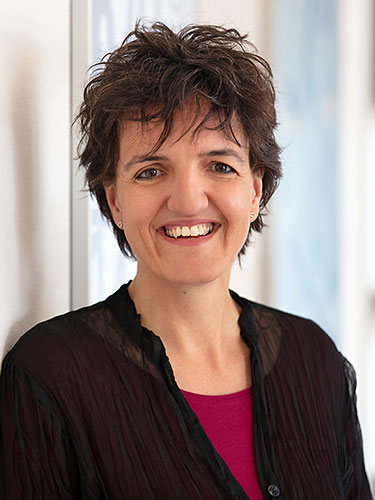ERC Advanced Grants for two Basel researchers
The European Research Council has awarded ERC Advanced Grants to two scientists from the University of Basel. Neurobiologist Prof. Silvia Arber and parasitologist Prof. Jennifer Keiser will receive funding in the millions for their pioneering research projects.
22 April 2021
The goal of the ERC Advanced Grants is to support established, leading principal investigators to pursue a groundbreaking and ambitious project. As all ERC grants, this funding is highly competitive. This year, of the 746 research proposals submitted in the life sciences domain, only 62 projects (8%) will be funded. Two researchers from the University of Basel will be receiving sizable ERC funding for five-year projects.
Neuronal circuits controlling movement
Prof. Silvia Arber is a research group leader at the Biozentrum of the University of Basel and the Friedrich Miescher Institute for Biomedical Research. She is an expert in the field of motor circuit function, and investigates the neuronal circuits controlling motor behavior. It is the third time that she is awarded an ERC grant. The ERC will provide around 2.5 million euros in funding to the project “InterAct”.
In their ERC project, Silvia Arber and her team will study neurons in the brainstem – an important switchboard between higher order movement planning centers in the brain and the executive circuits in the spinal cord. In past work, the Arber group identified separate neuronal populations in the brainstem dedicated to the regulation of specific behaviors.
Using this knowledge as entry point, the researchers will tackle this key question in the future project: How does the nervous system select these dedicated brainstem neurons to regulate behavior? The project will elucidate the circuit mechanisms by which brainstem neurons interact in the motor system, thereby uncovering principles of how the nervous system generates diverse actions. This knowledge will be essential for the treatment of motor disorders.
Improved treatment of tropical worm diseases
Infections caused by soil-transmitted helminths are among the most common infections worldwide, affecting an estimated 1.5 billion people, particulary in low- and middle-income countries. These infections are caused by several species of parasitic worms whose eggs develop in soil contaminated with feces. Intestinal worms cause a wide range of symptoms such as diarrhea and abdominal pain, which currently have limited treatment options.
The development of improved therapies is the main focus of the project of Prof. Dr. Jennifer Keiser, Professor of Neglected Tropical Diseases and Head of the Helminth Drug Development Unit at the Swiss Tropical and Public Health Institute. The ERC is funding her research project, called “DRUGSBUGS,” with approximately 2.5 million euros. This is the second time she has been awarded a grant from the ERC.
In their ERC project, Keiser and her team want to experimentally investigate how gut communities of patients affect the therapy of soil-transmitted helminth infections and how supportive modulation of this microbiome can improve treatment outcomes. The results, together with clinical studies on the anthelmintic drug emodepside and the use of novel tools for drug screening, should contribute to the development of effective therapies against worm infections.




